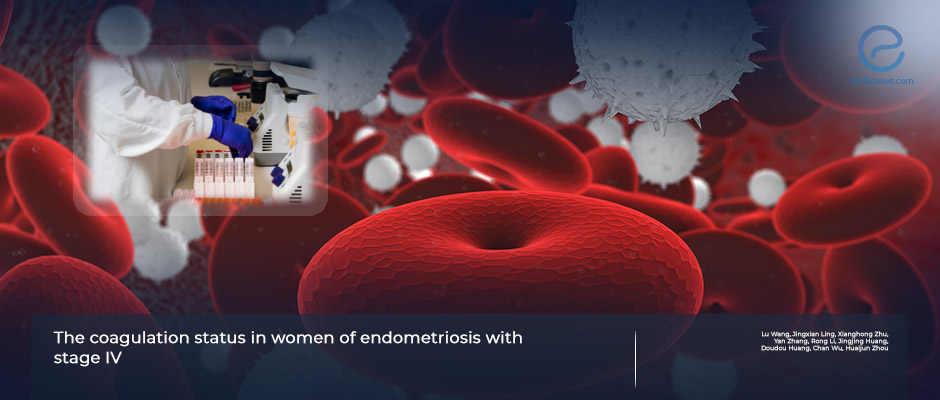The role of coagulation factors and tumor markers in diagnosing advanced stage endometriosis
Jul 16, 2024
Study reveals key correlations between inflammatory markers and coagulation factors in advanced stage endometriosis
Key Points
Highlight
- The study highlights significant correlations between inflammatory markers and coagulation factors in stage IV endometriosis.
Importance
- The correlation between inflammatory and coagulation markers in stage IV endometriosis provides crucial insights into its pathogenesis, potentially guiding more effective diagnostic and therapeutic strategies.
What’s done here
- Wang et al from China conducted a study aiming to investigate the relationship between inflammatory markers and coagulation factors in stage IV endometriosis.
- They compared certain blood markers to assess their potential as diagnostic biomarkers between endometriosis patients and controls.
Key results
- Significant correlations were found between inflammatory markers and coagulation factors, specifically APTT and FIB, in stage IV endometriosis patients.
- Women with stage IV endometriosis exhibited decreased APTT and increased FIB levels, indicating a hypercoagulable state.
- The combination of coagulation factors with tumor markers CA125 and CA19-9 provided improved diagnostic accuracy for stage IV endometriosis.
- The ROC analysis showed FIB had the highest diagnostic value among coagulation factors, with an AUC of 0.766.
- The combined diagnostic approach of coagulation factors, CA125, and CA19-9 achieved the highest AUC of 0.895, with 88.9% sensitivity and 77.7% specificity.
Limitations
- Retrospective nature of the study
- The control group being a surgical population
Lay Summary
As a systemic inflammatory condition, endometriosis features elevated proinflammatory cytokines, causing pain, endothelial dysfunction, carcinogenesis, and a hypercoagulable state. Patients with endometriosis show decreased thrombin time (TT) and activated partial thromboplastin time (APTT), alongside increased tissue factor (TF) and fibrinogen levels.
Wang et al from Nanjing, China recently conducted a study that aimed to investigate the relationship between inflammatory markers and coagulation factors in stage IV endometriosis and to assess their potential as diagnostic biomarkers. The article was published in the July 2024 issue of the journal BMC Women’s Health.
A total of 355 patients were included including 171 patients with stage IV endometriosis and 184 controls who had surgery for benign causes other than endometriosis. The patients with endometriosis were staged following the American Society for Reproductive Medicine's revised classification from I (mild) to IV (severe). All participants had postsurgical histopathological diagnoses. Before surgery, all patients underwent blood tests, including complete blood count, serum biochemistry, coagulation factors, and specific markers like neutrophil-to-lymphocyte ratio (NLR), CA125, and CA19-9.
No significant differences in terms of age or body mass index between stage IV endometriosis patients and controls were found. However, lower parity and higher dysmenorrhea incidence were prominent in the endometriosis group. Compared to controls, endometriosis patients had significantly decreased APTT and increased fibrinogen, indicating a hypercoagulable state, while TT and PT showed no differences. The NLR was higher in the endometriosis group. Correlation analysis revealed that APTT negatively correlated with NLR, and fibrinogen positively correlated with NLR. ROC analysis showed fibrinogen had the highest diagnostic value among coagulation factors, with the combined factors CA125 and CA19-9 yielding the highest diagnostic accuracy for stage IV endometriosis. However, the authors added that the predictive value of individual markers was low.
The authors conclude by pointing out the significant correlations between inflammatory factors and coagulation markers that they showed adding that future research should explore combining these markers for better diagnosis and new therapeutic strategies.
Research Source: https://pubmed.ncbi.nlm.nih.gov/38961373/
endometriosis coagulation factors CA125 CA19-9 APTT TT

